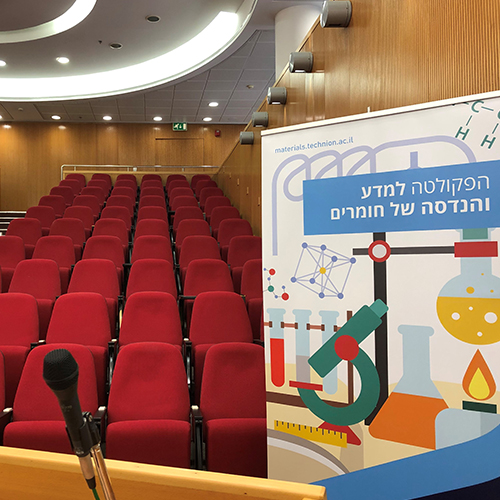
Ms. Yasmin Soltsman - M.Sc. Candidate
19/01/2025
אודיטוריום ע"ש דויד וואנג, בניין מידן, קומה 3
14:30
Selective laser sintering (SLS) is a 3D printing technique that uses a laser beam to selectively solidify powdered materials layer by layer. This process allows the fabrication of complex 3D structures and uses a variety of materials, including polymers, metals, and ceramics, to achieve tailored mechanical, electrical, and thermal properties. Polymers are extensively used in 3D printing due to their low melting points, high strength-to-weight ratios, design flexibility, and affordability. However, pure 3D-printed polymer parts are often limited by porosity, and inferior mechanical properties.
Thermoplastic polyurethane (TPU) is one of the most commonly used elastomers for SLS due to its good balance of mechanical strength and flexibility, but its high porosity can negatively impact its performance. The addition of fillers into the polymer matrix can enhance both mechanical and functional properties, creating materials known as polymer matrix composites.
Tin (Sn) is particularly valuable for its ductility, low melting point, corrosion resistance, and non-toxicity. This study focuses on the SLS 3D printing of TPU and TPU-Sn composites, aiming to reduce porosity and improve mechanical strength through optimization of filler concentration, printing orientation, and printing environment. The results demonstrate that by controlling these parameters, it is possible to adjust porosity and improve mechanical properties, emphasizing the potential of TPU-Sn composites for advanced applications.


